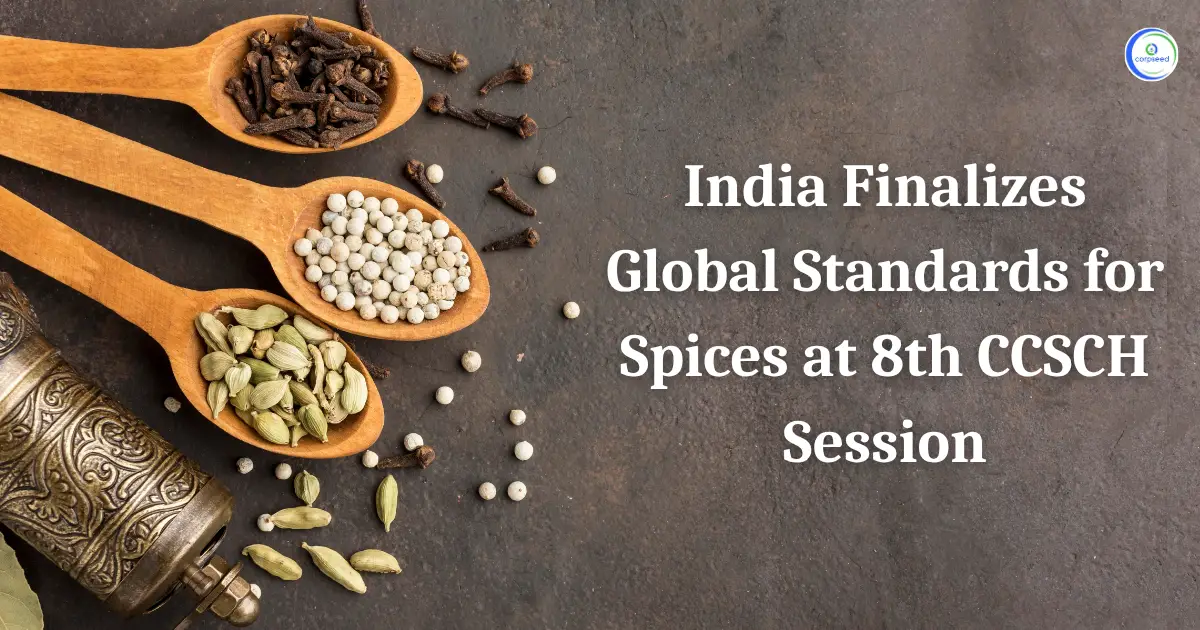The 8th session of the Codex Committee on Spices and Culinary Herbs (CCSCH) wrapped up successfully in Guwahati, India. This global event saw key international delegates come together to finalize standards for three major spices: vanilla, coriander, and large cardamom.
Table of Contents
The session was hosted by the Ministry of Commerce and Industry, with the Spice Board acting as the Secretariat. This marks a huge win for India’s leadership in setting international quality benchmarks for spices.
Big Step for Global Spice Trade
The finalization of these three spice standards is a result of years of international collaboration. In particular, the vanilla standard had been under discussion for several years due to its technical complexity. Now, with all three standards cleared, these spices are ready to be presented to the Codex Alimentarius Commission for global adoption.
Smt. P. Hemalatha, IAS, Secretary of the Spice Board, emphasized the benefits. She said these standards will help farmers, processors, and exporters to work with clear guidelines, ensuring quality and safety. For India, which produces and exports coriander and large cardamom in large volumes, this means smoother market access and stronger export potential.
Vanilla, though mostly imported into India, also benefits. A standard ensures global buyers and sellers speak the same language of quality. Consumers, too can be more confident in what they’re buying.
Global Participation Highlights Shared Commitment
Dr. Hilde Kruse from the Codex Alimentarius Commission noted the broad international participation, with 30 countries and observers attending. This signifies the growing awareness of the need for traceable, quality-assured spices in the global food supply.
She highlighted that such global collaboration helps build fair trade systems and gives consumers peace of mind. With spices being a major part of many diets worldwide, trust and safety are more important than ever.
As the host nation, India played a critical role in coordinating scientific and policy input. The Spice Board of India was deeply involved in organizing, preparing documents, and ensuring compliance with Codex protocols.
The session also reinforced the importance of spice board registration, which enables stakeholders to participate effectively in the regulated and quality-driven spice export ecosystem.
India Strengthens Its Global Role in Spices
This successful session is another step in India's journey as a global leader in the spice sector. With standards for 19 spices now finalized, including turmeric, saffron, cumin, and nutmeg, India continues to shape the future of international spice trade.
The newly finalized Codex standards will help reduce trade barriers, ensure safer products, and build stronger consumer trust across markets.
India’s role in the 8th CCSCH session highlights its leadership in global spice standards. With new benchmarks for vanilla, coriander, and cardamom, the country boosts its trade and strengthens food safety worldwide.
This portion of the site is for informational purposes only. The content is not legal advice. The statements and opinions are the expression of author, not corpseed, and have not been evaluated by corpseed for accuracy, completeness, or changes in the law.

